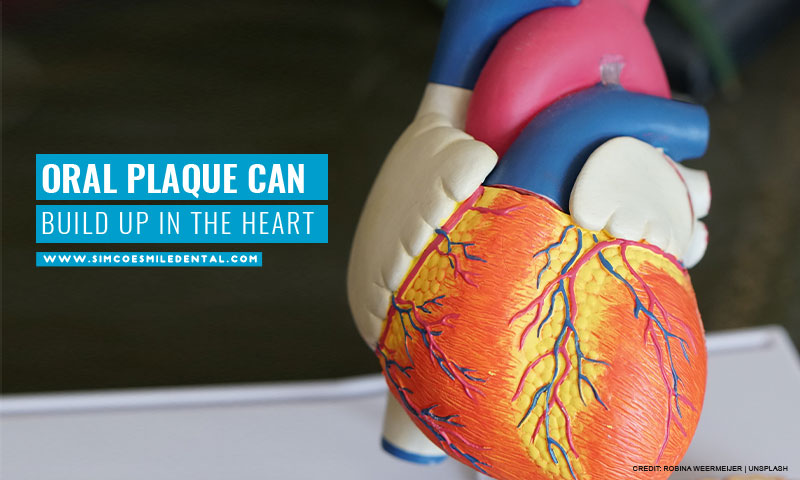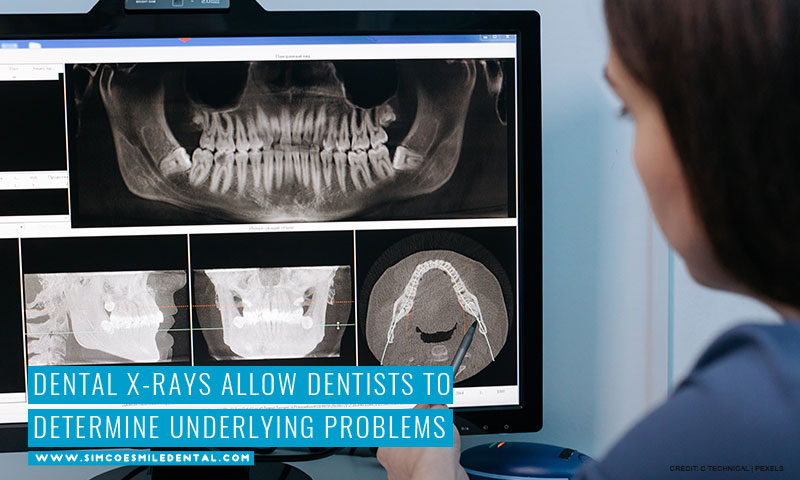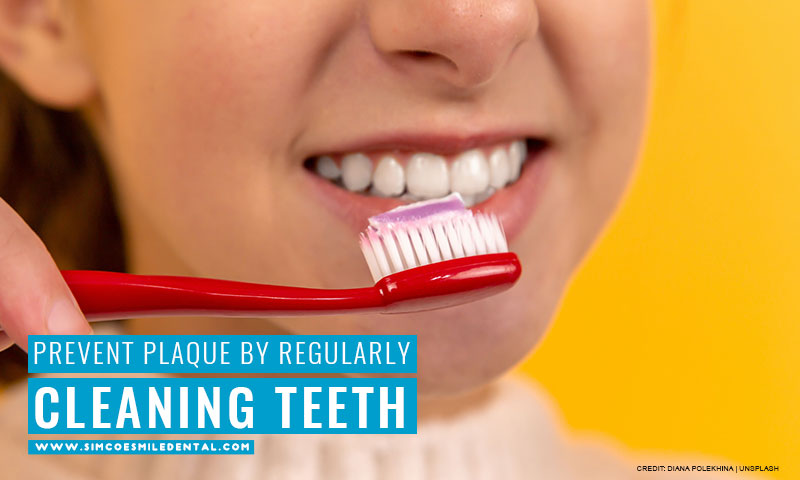In terms of heart health, typical recommendations involve performing cardiovascular exercises, eating a balanced diet, and avoiding stress. However, there is one other thing that can contribute to a healthy heart — the state of your teeth and gums.
Yes, that’s right. Oral health can affect your heart as well. Poor dental hygiene promotes the accumulation of dirt and bacteria in the mouth. When mouth bacteria reach the bloodstream they will then go to your heart. Read on to find out what your mouth says about the health of your heart.
Signs of Poor Oral Health
The following symptoms can indicate that you may problems with your heart as well:
- Chronic dry mouth condition
- Popping of the jaw
- Biting or chewing pain
- Loose teeth
- Highly sensitive teeth
- Swollen gums
- Gum bleeding when eating, brushing, or flossing
- Mouth sores and ulcers that will not subside beyond a week
- Broken or cracked teeth
- Swollen cheeks
- Receding gumline
- Toothache
- Bad breath
If you have one or more of these symptoms then you should consult your dentist as soon as possible. However, if such symptoms are accompanied by fever and swelling of the neck, seek medical help immediately.
Contributing Factors to Oral Disease
Lifestyle choices and pre-existing conditions put you at greater risk for oral diseases. Below are some contributing factors:
- Poor dental hygiene
- Diet rich in sweets
- Smoking
- Heartburn
- Medications that reduce the saliva
- Genes or hereditary condition
- Certain medical conditions like AIDS
- Hormonal changes (usually in women)
How Does Gum Disease Affect the Heart?
While it may seem unlikely, there is a strong connection between oral infection and cardiovascular disease.
You may be wondering, ”How does this happen?”, “Which tooth is connected to the heart?” All teeth and gums are connected to the heart. If your teeth or gums are in poor condition, this can ultimately affect your cardiovascular system. Bacterial infection can easily spread through the bloodstream.
Gum disease (or periodontal disease) usually starts with gum inflammation (or gingivitis). Gingivitis is caused by plaque. Plaque irritates the gums, inflaming them, causing gingivitis. Gum inflammation, when left untreated, can lead to gum disease.
Plaque, however, can enter the bloodstream and reach other parts of the body, including the heart. Because of the link between gum disease and heart attack, those with gum disease are 2 to 3 times at risk of having a heart attack.
Gum disease and heart palpitation should not be ignored. If you have a diagnosed gum disease and are experiencing heart palpitations, go to your doctor immediately.
Dental Examination
Early detection of oral diseases is important. A dentist will closely examine your mouth, teeth, gums, and the following:
- Tongue
- Neck
- Cheeks
- Jaw
- Throat
The dentist then evaluates the condition of your gums using a dental probe. A measurement of more than 3 mm (millimetres) means that you have receding gums. A dental X-ray may also be required so the dentist can check the condition of the roots of the teeth as well.
Dental Problem Treatment and Prevention
- Medication
The dentist may prescribe antibacterials to calm gum inflammation. They come in various forms including capsules, tablets, gels, and mouth rinses. If you choose to make do-it-yourself rinses, consult first with your dentist to make sure that the mixture does not your teeth or gums.
- Deep cleaning
Visit your dentist twice a year for checkups and teeth cleaning. However, when signs of gum disease are found, deep cleaning is necessary. Deep cleaning involves root planing and gum scaling. Gum scaling, or simply scaling, removes tartar or plaque below the gumline. Tartar is the calcified plaque. After scaling, the roots of your teeth will undergo root planing to smoothen the roots, which can help the gums heal.
- Fluoride treatment
This treatment is performed after dental cleaning and is applied usually by swab or mouthwash. The fluoride concentrate is higher than what is found in your toothpaste. Fluoride can help strengthen the enamel of your teeth. For full absorption of the fluoride, you will be required not to eat or drink for at least 30 minutes.
- Tooth repair
Your dentist can repair damaged teeth with a crown or filling. A crown is used to replace missing, broken, or damaged parts of the tooth. A filling, on the other hand, will fill in the cracks or holes in teeth. Dentists will sometimes remove the damaged portion of the tooth using drills that will create a hole. The hole then needs to be filled to make the tooth whole again.
- Root canal treatment
Tooth removal is no longer the only option for treating severely damaged teeth. Root canal treatment allows dentists to save the tooth even when the damage has reached the nerves. The root canal procedure will treat this by removing the part of the tooth called the pulp.
- Maintain a healthy lifestyle
One of the primary ways of preventing dental problems is through proper dental hygiene. Brushing twice a day and flossing once a day prevents plaque build-up. Augment this daily routine with regular visits to the dentist so you can stay on top of your dental health.Also, keep in mind that your lifestyle choices affect your teeth. Eat the right kind of food. Reduce your intake of sweets and junk food since they can easily create plaque. Instead, eat more nutrient-rich food varieties like vegetables and probiotics to strengthen teeth. You should also quite smoking (if you smoke) and drink alcoholic beverages only in moderation. These not only stain teeth, but can also reduce your body’s ability to fight off infections.
Bad teeth and heart disease may seem like totally unrelated conditions, but because of the link between your oral health and overall health, dental issues can lead to a higher risk of cardiovascular diseases. Having healthy teeth and gums can prevent oral infections from reaching your heart.
Take care of your heart by taking care of your teeth. Turn to Simcoe Smile Dental for excellent dental health services in Oshawa. Give us a call today at (289) 312-1482 and book an appointment.





 One of the primary ways of preventing dental problems is through proper dental hygiene. Brushing twice a day and flossing once a day prevents plaque build-up. Augment this daily routine with regular visits to the dentist so you can stay on top of your dental health.Also, keep in mind that your lifestyle choices affect your teeth. Eat the right kind of food. Reduce your intake of sweets and junk food since they can easily create plaque. Instead, eat more nutrient-rich food varieties like vegetables and probiotics to strengthen teeth. You should also quite smoking (if you smoke) and drink alcoholic beverages only in moderation. These not only stain teeth, but can also reduce your body’s ability to fight off infections.
One of the primary ways of preventing dental problems is through proper dental hygiene. Brushing twice a day and flossing once a day prevents plaque build-up. Augment this daily routine with regular visits to the dentist so you can stay on top of your dental health.Also, keep in mind that your lifestyle choices affect your teeth. Eat the right kind of food. Reduce your intake of sweets and junk food since they can easily create plaque. Instead, eat more nutrient-rich food varieties like vegetables and probiotics to strengthen teeth. You should also quite smoking (if you smoke) and drink alcoholic beverages only in moderation. These not only stain teeth, but can also reduce your body’s ability to fight off infections.